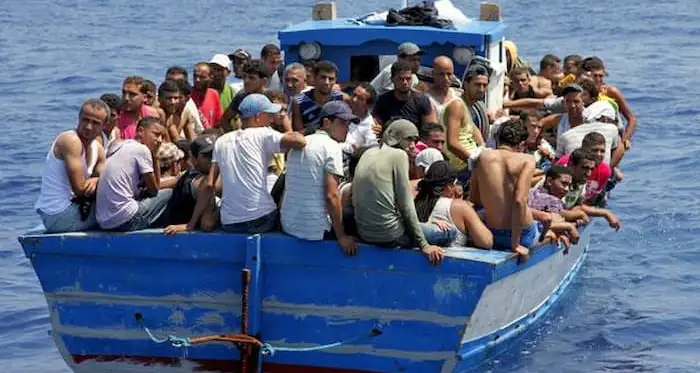Less than 20% of expulsion decisions concerning migrants in an irregular situation are actually implemented, said Ursula von der Leyen. It has promised enhanced cooperation with the third -party countries concerned, in particular by harvesting the granting of visas for those who do not collaborate.
Hardening of visa granting for countries that do not collaborate.
Returns from North Africa to countries of origin have intensified through operations funded by the EU to reach 17,700 in 2024.
The agreements concluded with Tunisia and Libya made it possible to reduce irregular migrants in the EU by the Central Mediterranean by 66%
The European Commission will propose new legislation to facilitate evictions. In a letter addressed to the 27 Member States, the President of the Commission announced that this proposal will include “clear obligations of cooperation for people returned” and will aim to “rationalize the return process”.
Approaching a European summit devoted in part to migration issues, Brussels wishes to facilitate evictions by establishing mutual recognition of the decisions of the Member States.
“It is essential to build a level of harmonization and confidence to ensure that the migrants referred to in a return decision cannot take advantage of the shortcomings of the system to avoid their dismissal,” said Von Der Leyen.
It also underlined the need for increased cooperation with third countries, by adopting measures such as the tightening of the granting of visas for recalcitrant countries.
The President of the Commission suggested developing “strategic” relations with the countries of origin and transit, as was done with Libya and Tunisia. The EU has signed agreements with these nations to, among other things, brake the departures of migrants and facilitate their repatriation.
Ursula von der Leyen indicated that returns from North Africa to countries of origin had increased thanks to operations funded by the EU, reaching 17,700 returns in 2024.
She also noted that the agreements concluded with Tunisia and Libya had made it possible to reduce irregular migrants in the EU via the central Mediterranean by 66%. However, it recognized a 56% increase in arrivals by the Western Mediterranean to Spain at the end of September, calling for strengthening partnerships with countries like Mauritania to stem these flows.








